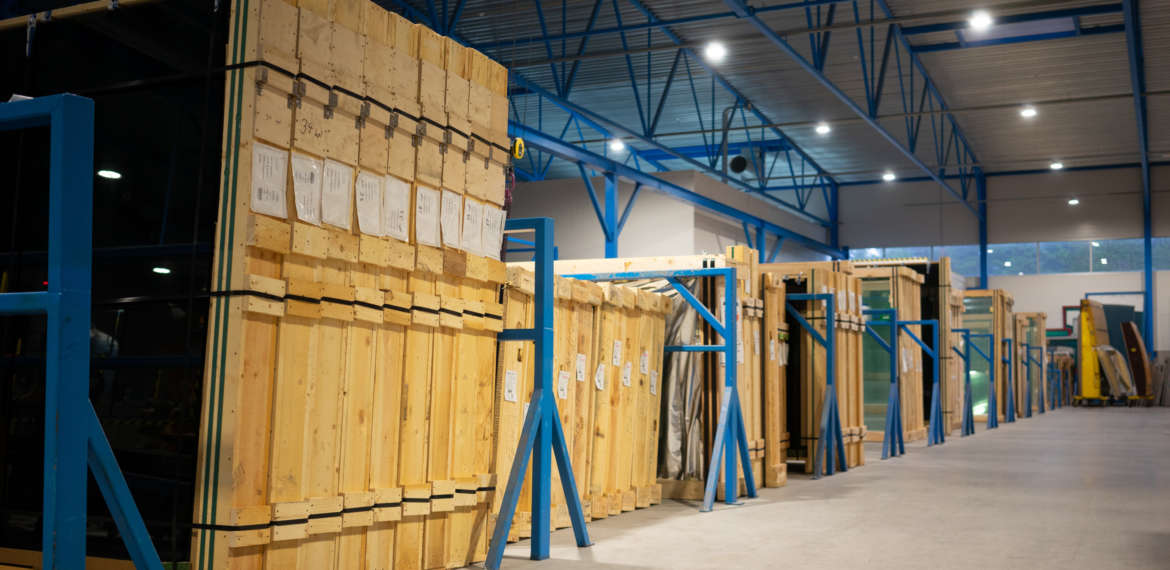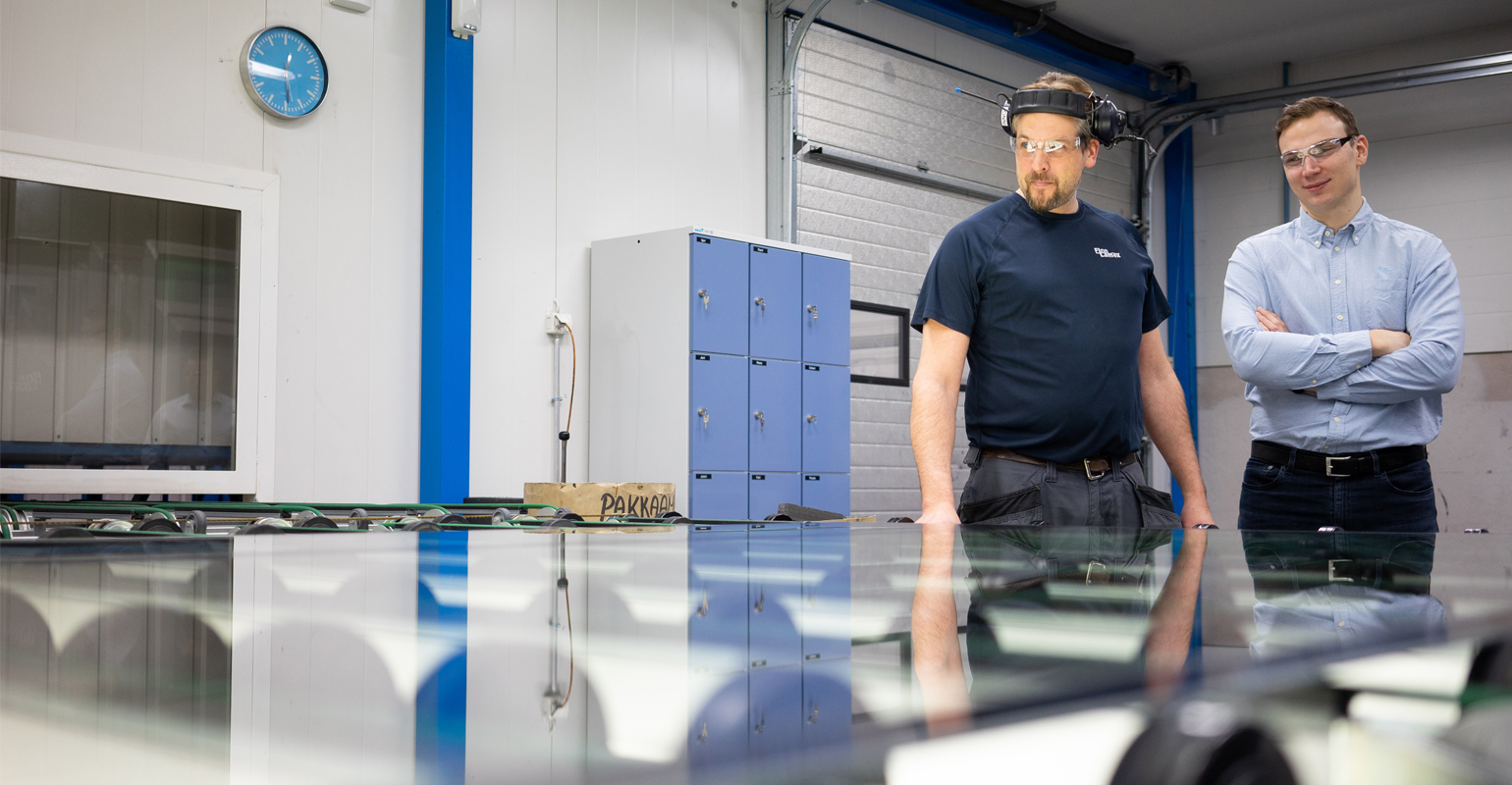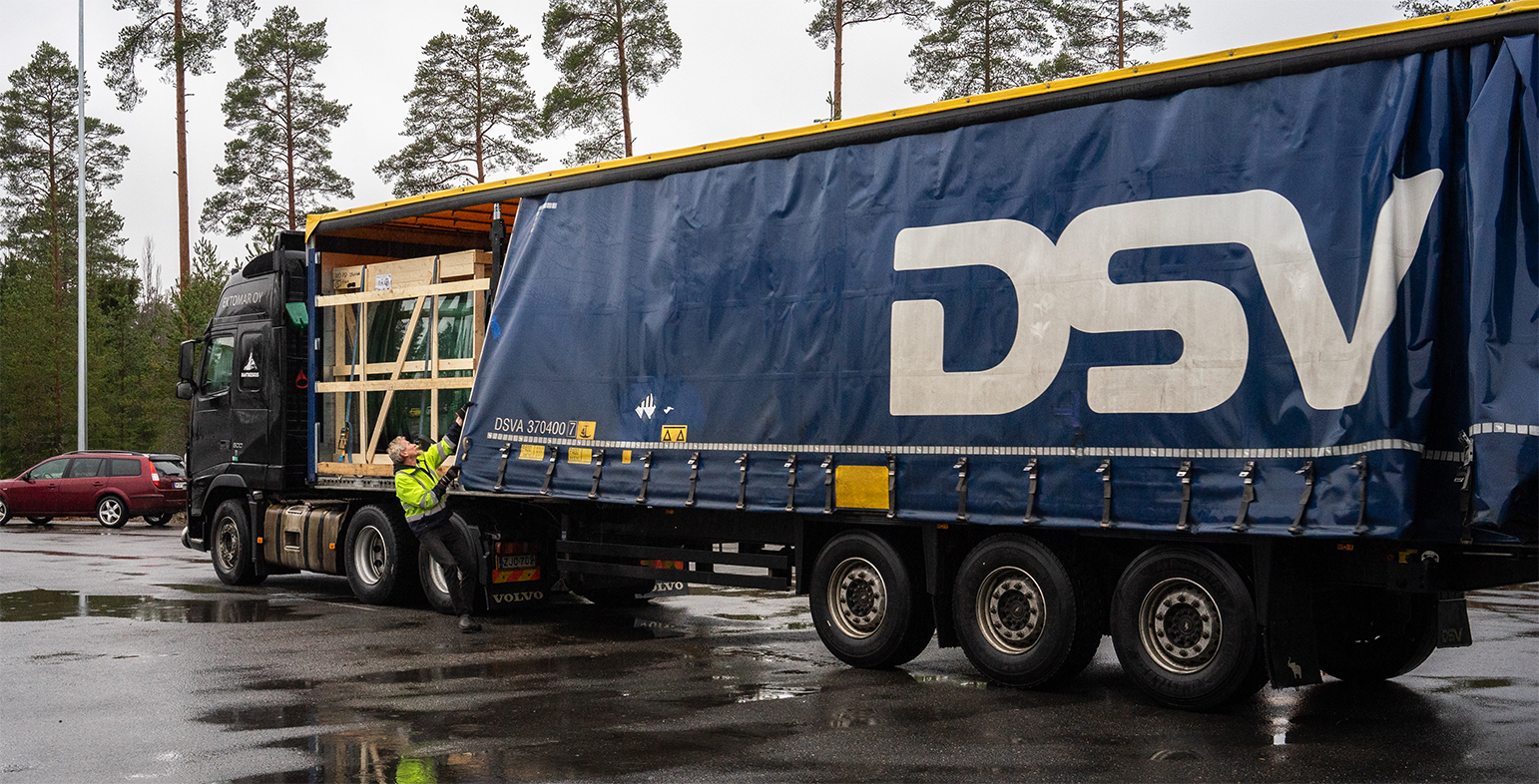Windscreen exports via Turku
Located in Laitila, Southwest Finland, Finn Lamex manufactures windscreens e.g. for the English double-decker buses. The goods are carried to the UK via the Port of Turku.

A large glass screen gradually begins to bend at the temperature of 600 degrees Celsius. The employee watches through the furnace door to ensure that it is formed exactly as per the mould underneath.
Tero Toivanen, Managing Director of the Laitila-based company Finn Lamex Safety Glass Oy, points out that manufacturing windscreens for buses requires extreme precision. “There is a five millimetre tolerance in a windscreen of five square metres. Falsely bent glass causes optical errors that affect the driver’s field of vision. In addition, a large windscreen has to fit the profile of the vehicle precisely”, he says.
The process is made more complicated by the fact that there are a lot of different bus models, and therefore also windscreen models – and relatively few buses that use the same model. “We have a total of around one thousand different windscreen moulds, mostly for buses.”

Exports are doing well
The leading know-how of Finn Lamex is highly valued around the world. The company sells its products to 31 countries. Around 98 per cent of the production is exported. “Our strongest areas are Central and Southern Europe as well as England. We also export windscreens e.g. to Japan, North America, Russia, Belarus, and Ukraine. Recently we received inquiries from Algeria”, says Export Manager Toni Kallio.
For the past three years, Finn Lamex has been following the situation in its important market area, England, and the progress of the Brexit negotiations. “We have been forced to prepare for what’s to come, so we have looked for new customers outside the UK. But we will surely continue to export windscreens to England”, Mr Toivanen says.
Manufacturing windscreens for traditional English double-decker buses is an art of its own, and the Brits themselves can’t do it. “With two windscreens at the front there can’t be any inaccuracy between them, and they must be precise in terms of the profiles, too”, Mr Toivanen points out.
Port of Turku is easy to reach
Finn Lamex windscreens going to England, Sweden and Norway are exported via the Port of Turku.
Toni Vahlsten, Area Sales Manager for England at DSV Road Oy, says that one or two full mega trailers leave for the UK every week. One shipment thus comprises of 100–150 windscreens. “The trailers are carried by Silja or Viking ferries to Stockholm, drive through Sweden and then continue by ship to our terminal in Immingham. There the trailers are unloaded, and the windscreens are distributed to different parts of the country.”

The Finn Lamex people are very satisfied with their co-operation with the Port of Turku. “The Port of Turku is easy to reach. Highway 8 is so fast that it makes Laitila feel almost like a suburb of Turku”, Tero Toivanen says.
Enough timber in packages to build a house
The fact that the product is made of glass sets its special requirements for the shipment. “The windscreens are packed in tailor-made robust wooden packages that have slits padded with foam rubber. The packages are also partly open on purpose, so that the load handler can see right away that they contain fragile goods. In addition, the packages are, of course, fastened carefully in the trailers”, Mr Kallio describes.
Although the Finn Lamex windscreens are made of laminated safety glass, they break if a package falls down. “Windscreens are damaged during transport extremely rarely”, Mr Kallio says.
Mr Toivanen remembers the times when Finn Lamex sent its first shipments to Russia. “The recipient at their end said about the packages that there was enough timber to build a house”, he chuckles.
Text: Matti Välimäki
Photos: Ilari Välimäki
